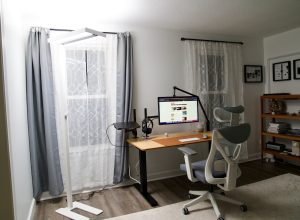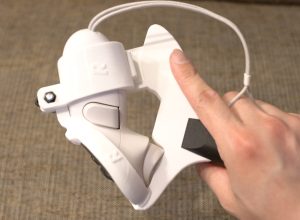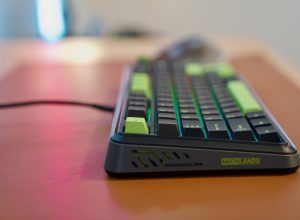I’ve used some different portable solar panels over the years and found them extremely useful for my camping trips or when traveling to remote areas. So I was excited to try out the new OptiSolex Portable SolarBag Kit to see how it stands against similar products on the market. The kit is priced at $799 but early buyers could get discounts during the launch period.
Disclosure: We received the kit as a courtesy for review purposes. However, the review is intended to provide honest, unbiased insights about the product, based on personal experiences and observations.
SolarBag Solar Panel Specifications
| Max Power at STC | 400W (can be unzipped into two 200W panels) |
| Weight | 7.8 kg (17.2 lbs) |
| Cell Type | ETF-coated, N-type monocrystalline |
| Efficiency | Up to 23% (shade-tolerant technology) |
| Dimensions (Folded) | 53.5 x 41.5 x 11.5 cm (21.06 x 17.16 x 4.53 in) |
| Dimensions (Unfolded) | 168.5 x 157 x 3 cm (66.34 x 61.81 x 1.3 in) |
| Open Circuit Voltage (Voc) | 42V |
| Short Circuit Current (Isc) | 11.8A |
| Maximum Power Voltage (Vmp) | 36V |
| Maximum Power Current (Imp) | 12A |
| USB-C Output | 5V/3A, 9V/3A, 12V/3A, 15V/3A, PD 45W max |
| USB-A Output | 5V/3A, 9V/2A, 12V/1.5A, 18W max |
Design and Build Quality
The OptiSolex Kit includes the 400W Portable SolarBag, which can unzip into two 200W panels, a battery cable, and the SolexBrick S1, a decentralized MPPT controller.
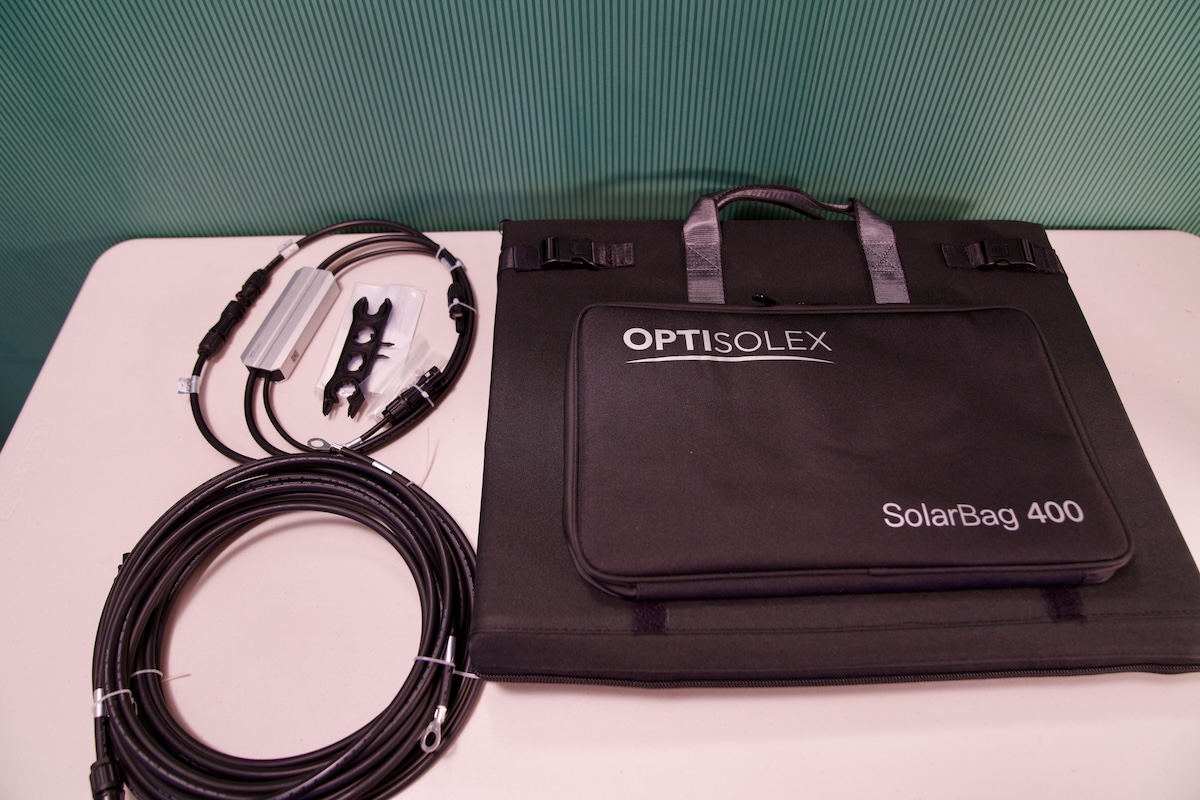
The design of the SolarBag solar panel really amazes me, especially with its portability. The built-in handle, shoulder strap and foldable design makes it easy to carry and set up. You can even unzip the bag and divide it into two independent 200W panels. This modularity is perfect when you just need a 200W panel. Each of the panel has its own Type-C (45W) and two USB-A ports (18W), so you can recharge your devices without connecting to a battery.
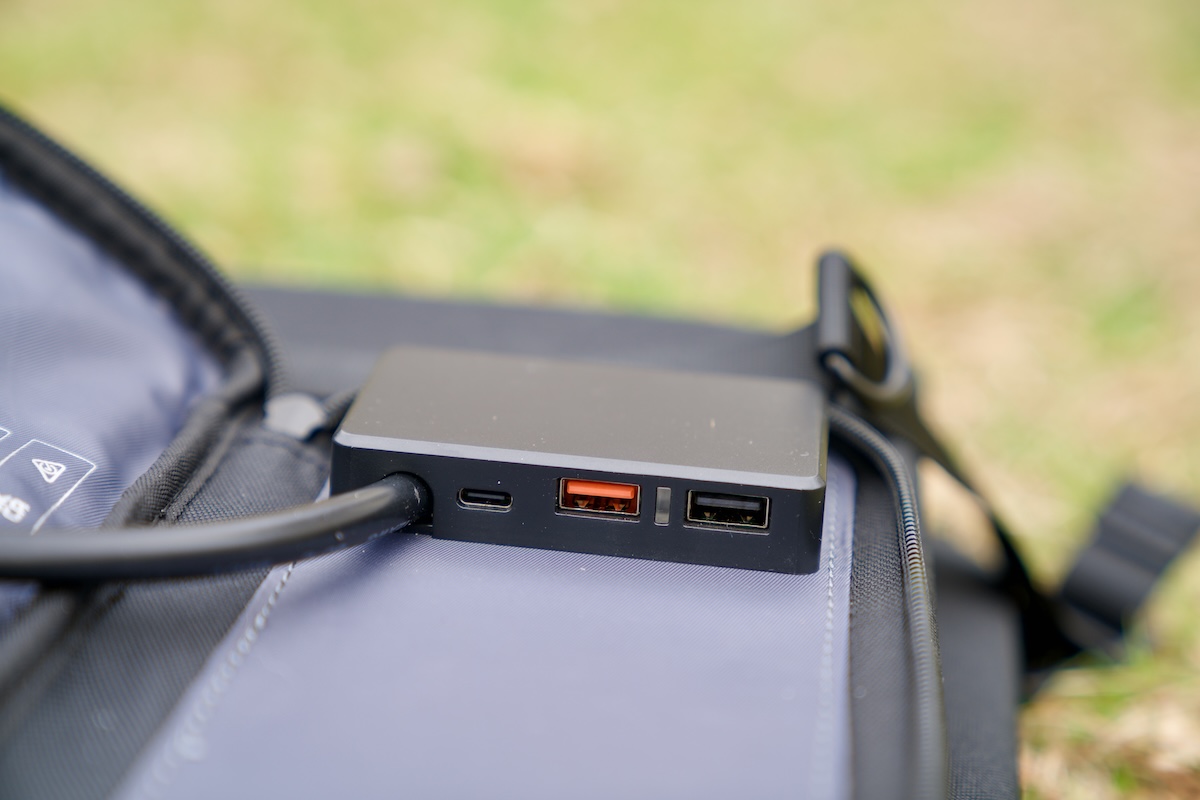
Notably, the bag weighs only 17.2 lbs, which is significantly lighter than many 400W panels on the market. Other competitors like the Renogy and EcoFlow weigh 16.09 lbs and 35.3 lbs respectively. The 200W solar panel that I used recently weighs nearly 14 lbs; So it is quite amazing they can fit 400W panels into such a compact and lightweight bag.
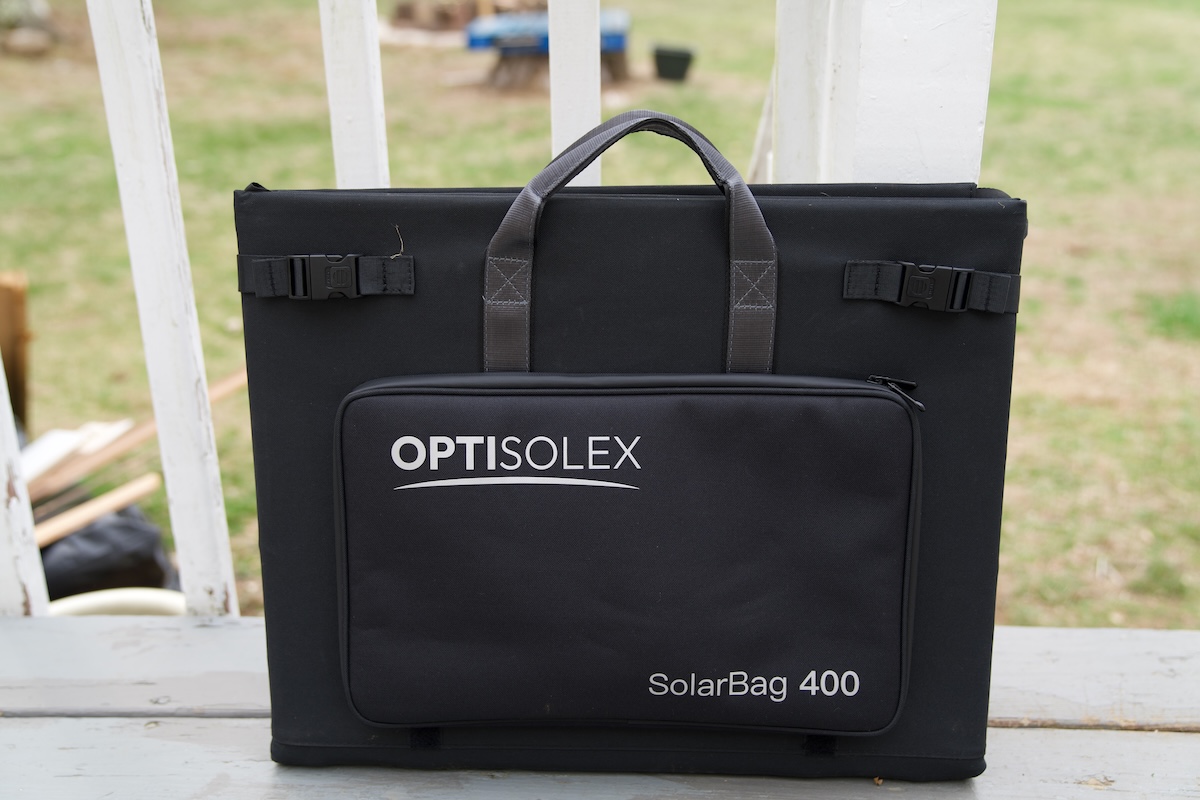
To provide a clearer comparison, here are some key specifications for OptiSolex, Renogy, and EcoFlow 400W panels:
| OptiSolex 400W Portable SolarBag | Renogy 400W Solar Panel Blanket | EcoFlow 400W Portable Solar Panel | |
|---|---|---|---|
| Weight | 17.2 lbs (7.8 kg) | 16.09 lbs (7.3kg) | 35.3 lbs (16.0 kg) |
| Folded Dimensions | 24.4 x 21.3 x 1.8 in | 16.54 x 15.83 x 4.13 in | 41.7 x 24.4 x 1.3 in |
| Power Output | 400W | 400W | 400W |
| Cell Type | ETF-coated, N-type | N-type cell | Monocrystalline silicon |
| Price (Launch/MSRP) | $799 (including SolexBrick controller), $499 during launch promotion | $499 | $699 |
The panel uses ETF-coated, N-type cells, which are known for higher efficiency and longer lifespan compared to traditional P-type cells. The materials seem to be durable as the ETF coating improves resistance to weather conditions. I even could step on the panels without damaging them.
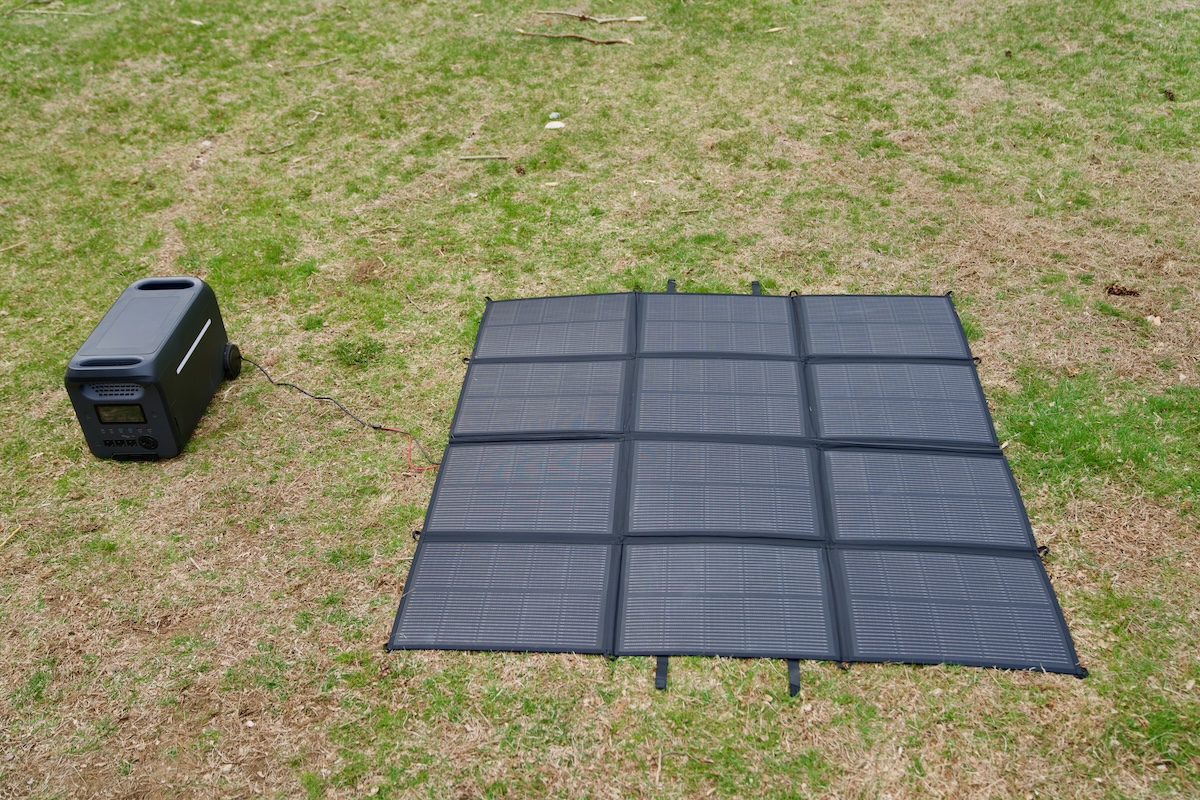
On the other hand, its ultralight design enables flexible installation configurations, including canopy-style suspension, vehicle dashboard placement, and RV side-mounting via integrated corner attachment loops. This adaptable mounting system ensures optimal solar exposure across various use cases while maintaining the panel’s structural integrity.
Performance Analysis
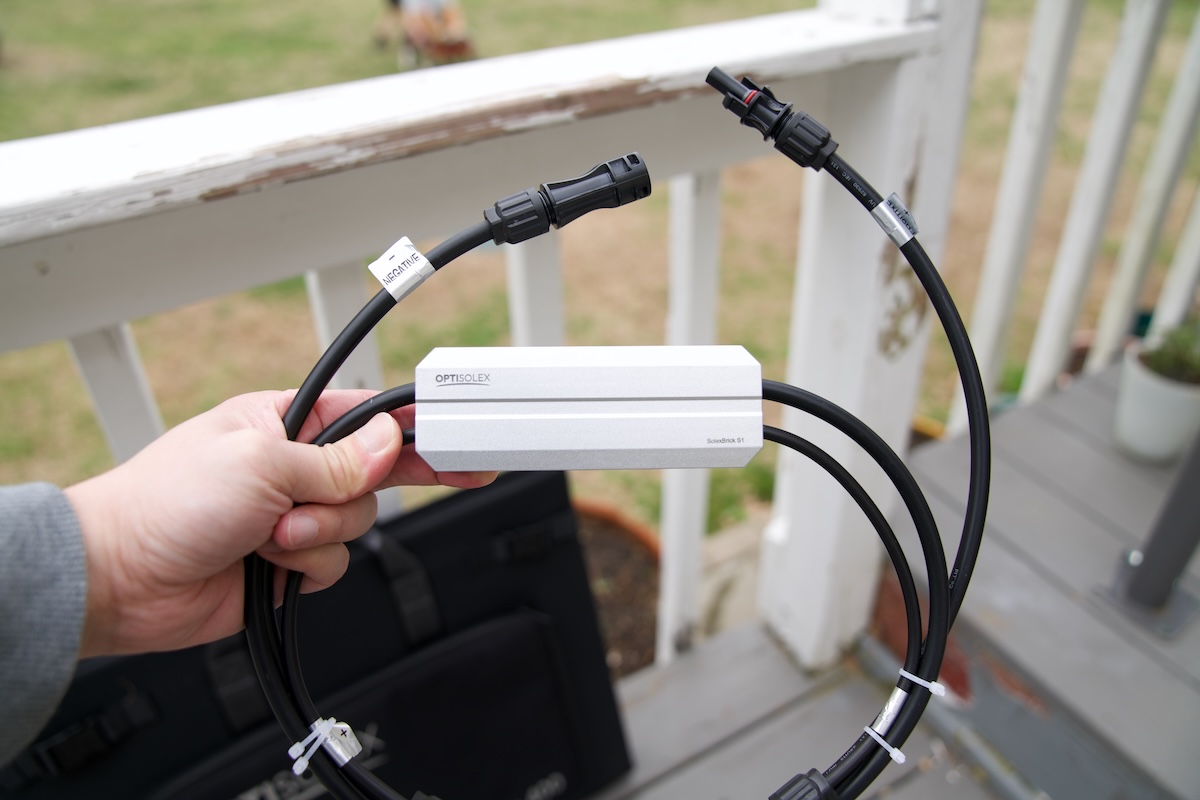
The kit includes a SolexBrick S1 which makes it easier to connect to a battery. This requires no electrical expertise, so you can get it up and running quickly. The SolexBrick is essentially a MPPT controller that helps you maximize power output coming from your solar panels, even when they are from different brands. Since I use the panel with my power station equipped with MPPT, I don’t need to use the SolexBrick S1. I saw some people test the SolexBrick S1 with a power station and it is just wrong; This setup could lead to issues like mutual exclusion, overvoltage protection tripping, and damages to the power station or controller.
The SolexBrick S1 boasts a compact and rugged design as one of the smallest MPPT controllers on the market, it measures just 4.33 x 1.6 x 1.18 in and weighs only 1.1 lbs. It is also IP68-rated, ensuring it is dust-tight and waterproof to withstand harsh outdoor conditions. Its decentralized MPPT design allows one SolexBrick S1 to connect to a single solar panel, ensuring each panel operates independently, a feature that maximizes efficiency by preventing a single shaded panel from dragging down the entire system’s performance. The SolexBrick S1 optimizes power output across all modules, dynamically adjusting voltage and current to maintain peak performance even under partial shading or varying angles.
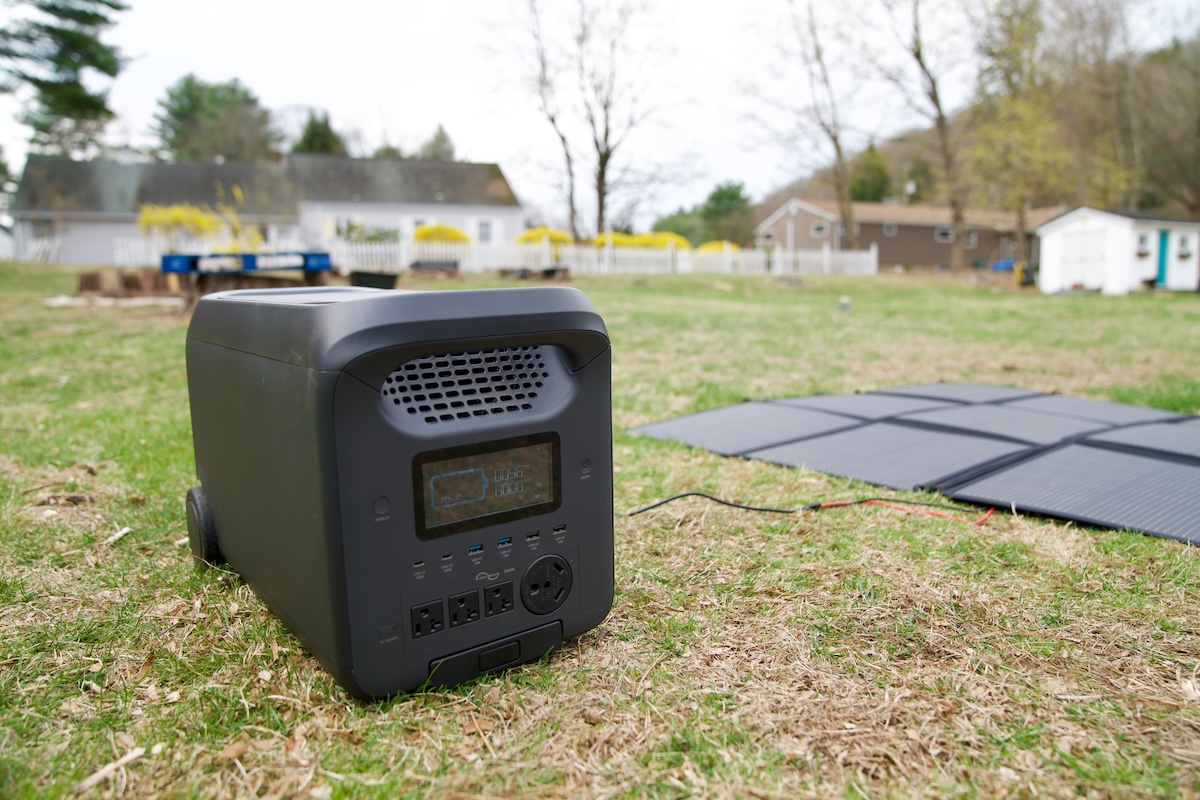
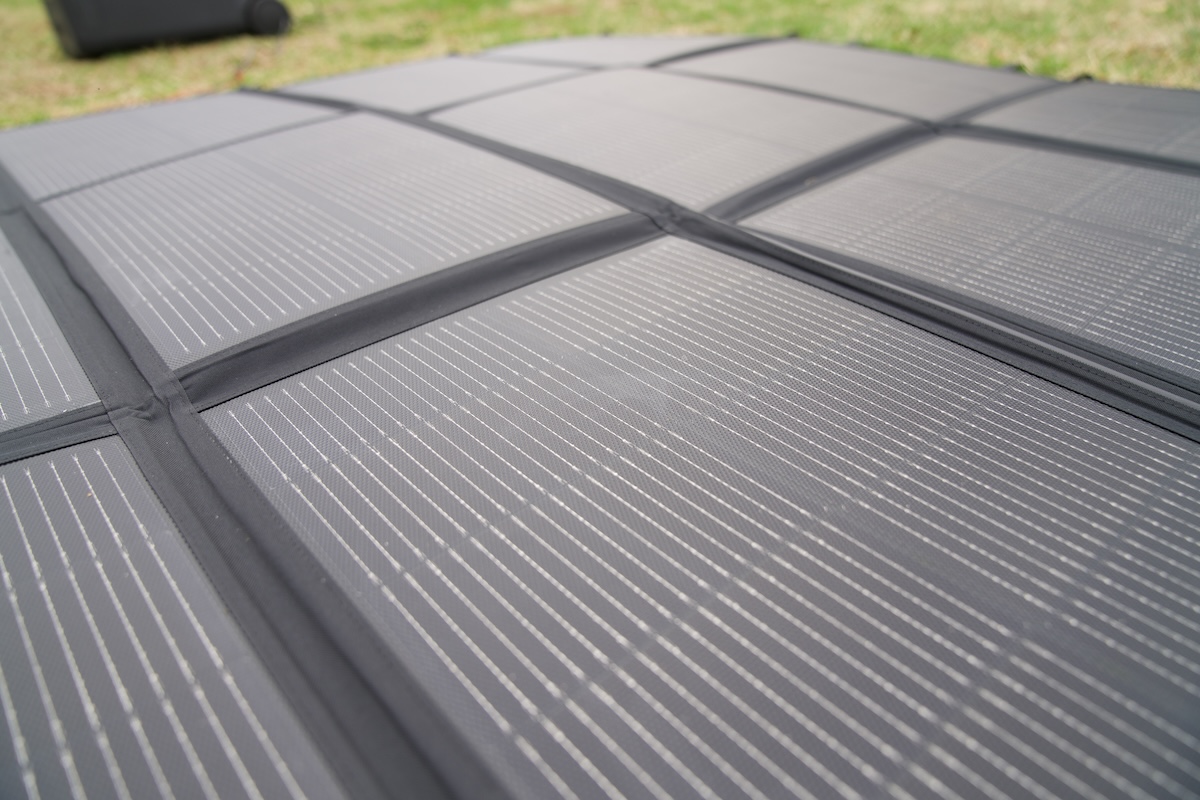
The OptiSolex panel has a 400W output, which is substantial for a portable solution. It features shade-tolerant technology when used with the SolexBrick S1. This technology ensures consistent power generation even when the panel is partially shaded. When a panel has unwanted objects like leaves or bird droppings on its surface, the power output of other solar panels (each equipped with a separated SolexBrick S1) are not affected.
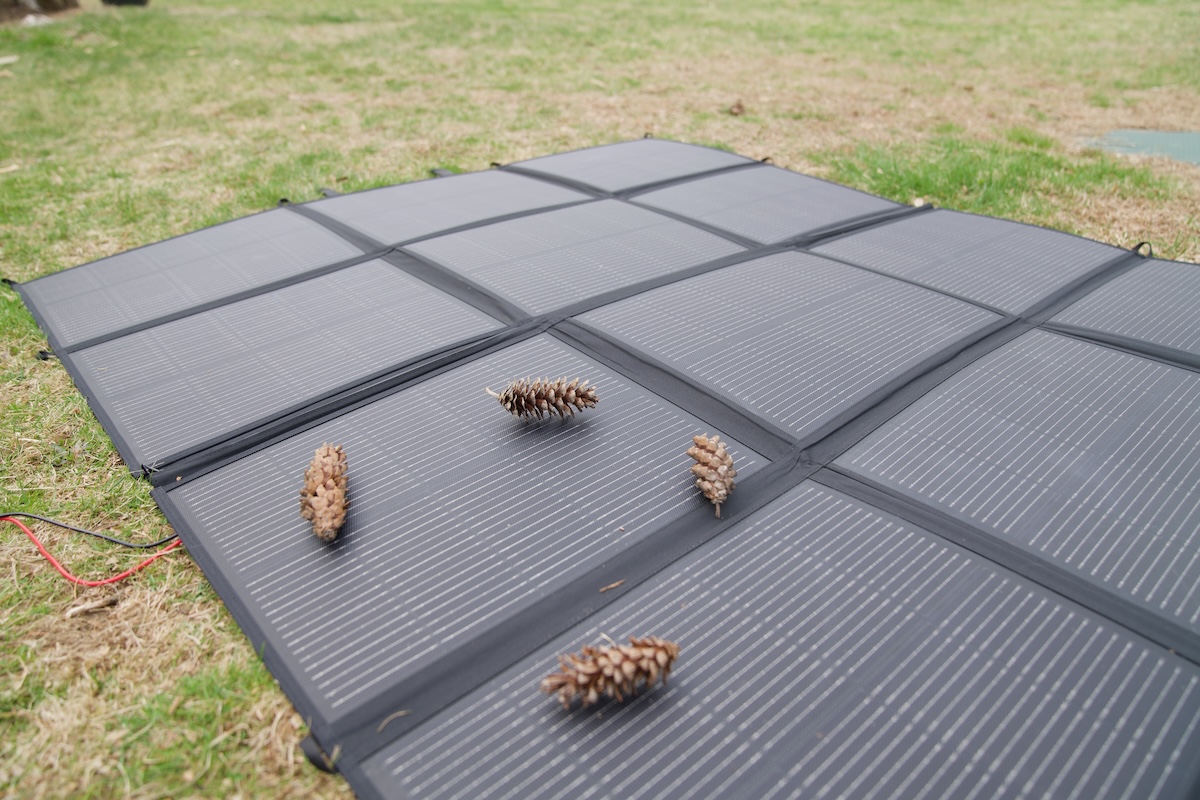
I tested the solar panels during early Spring in New England; They manage to output 100-180W at noon on cloudy days and 300-340W on sunny days. This is quite impressive considering the fact that the SolarBag stays flat on the ground while my other solar panels have a better angle facing towards the sun. The SolarBag’s exceptional performance without needing to be angled like traditional 400W panels proves the SolarBag’s advanced N-Type cells technology extract more energy from limited sunlight.
Conclusion
Pros
- Lightweight
- Includes plug-and-play SolexBrick S1 MPPT controller
- Competitive pricing at launch
- Impressive power output even when staying flat on the ground
Cons
- Can’t adjust angle of panel
The OptiSolex 400W Portable SolarBag Kit addresses many pain points of traditional solar setups. Its lightweight design, modularity, ease of use, and shade-tolerant technology make it a great choice for portable solar needs. It is launching in April 2025 and will ship in June. The original price tag is $799 but they are offering super early bird discount, so you can grab it for $499. The kit has the lowest price as compared to competitors and it also includes the SolexBrick S1 controller which already costs $159. If you’re interested in the product, you can find out more information on its Kickstarter page.
